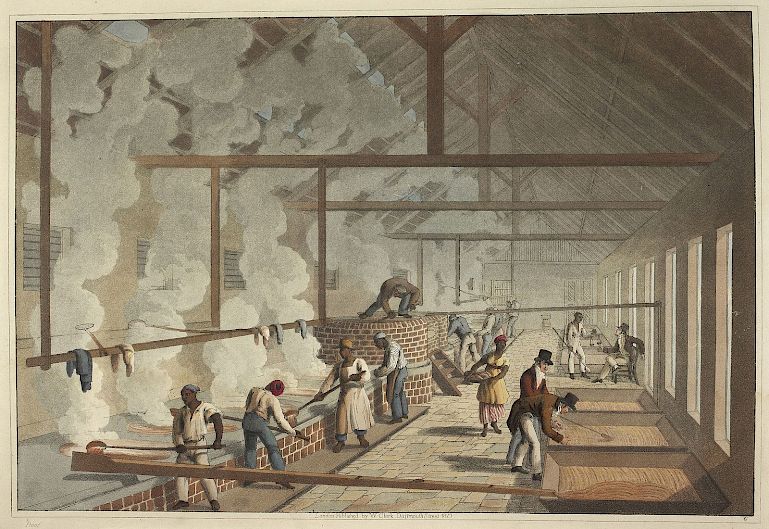What We're Reading This Week

Credit: William Clark
Henry Jacob, University of Cambridge
Ian Sanjay Patel, We’re here because you were there: Immigration and the end of empire, Verso Books.
In his first book, Ian Sanjay Patel explains why Britain struggled to solidify its national identity in the wake of decolonization. Focusing on the development of immigration laws over the twentieth century, Patel demonstrates the fragility of nonwhite colonial and Commonwealth citizens’ rights. Indeed, as policymakers redefined Britain’s new global role, they engendered a xenophobic set of rules designed to restrict people’s mobility based on their race.
Padraic Scanlan, “The emancipated empire,” Aeon.
Revisiting Eric William’s thesis from Capitalism and Slavery, Padraic Scanlan describes how British abolitionism developed in tandem with empire. Nineteenth-century discourses of civilization intertwined with Britons’ realization that wage, rather than slave, labor proved more profitable. For this reason, “antislavery in Britain was not a threat to empire; empire gave it shape and impetus.” As Scanlan notes, this nexus between liberalism and unfreedom offers insights on current discussions on police and the prison-industrial complex.
Andrew Phillips and J.C. Sharman, Outsourcing empire: How company-states made the modern world, University of Princeton Press.
Did sovereign states drive the first iteration of globalization? For Andrew Phillips and J.C. Sharman, it was instead company states that pioneered the nexus between capital and imperial formation. Spanning from the seventeenth to the twentieth century, this comparative study traces how entities such as the Dutch and English East India Companies grew, collapsed, and bequeathed a legacy of corporate expansionism.
Joel van de Sande, Columbia University
Giancarlo Casale hosted by Brittany White, “Osman of Timisoara: Prisoner of the infidels,” Ottoman History Podcast.
Brittany White and Giancarlo Casale discuss the autobiography of Osman of Timisoara.
Kariuki Kirigia, “An appraisal of promises after the ruins: The global land rush in Africa,” Afronomiclaw.
Kariuki Kirigia reviews a book that “addresses some of the major misconceptions about the land rush on the African continent and, especially, the Eurocentric coverage of the land rush in Africa within the international political economy discourse by attending to local, national, and transnational land grabs and actors that have been largely marginalized in these debates.”
Andrew Kahn and Irina Reyfman on Alexander Radishchev’s Journey from St. Petersburg to Moscow, Columbia University Press Blog.
Andrew Kahn and Irina Reyfman consider “the role of the travelogue in the eighteenth century and Radishchev’s motivation for writing [Journey from St. Petersburg to Moscow].”